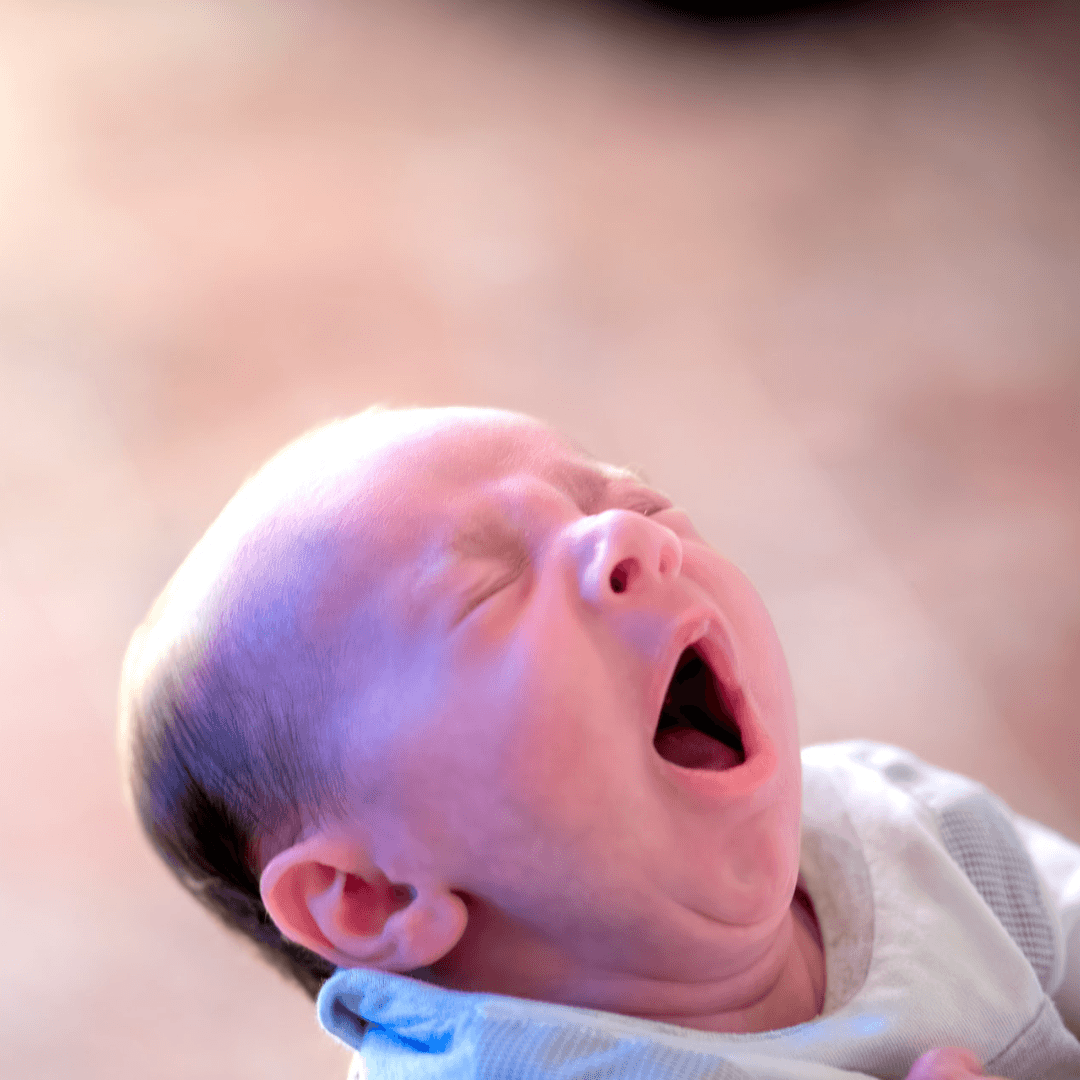What is Infant Colic?
Infant colic refers when a newborn baby or a baby who is 2 to 3 months old does not have any physical disease, but experiences symptoms of severe, episodic crying.
Does a baby who was born without any abnormality suddenly cry at night for no reason from around 2-4 weeks of age and suffer from insomnia? Mum and Dad are find it harder and harder because they don't know the reason, and they keep trying to find out what they did wrong.
In this case, it is better to empty your mind of worries for a while, because infant colic could be the cause. Babies who cry from colic usually cry the most between 6 and 10 pm.
Infantile Colic Timing and Symptoms
Infantile colic usually begins around 2 to 4 weeks of age. It gets most severe around 6 weeks of age, and sometimes babies cry for more than 3 hours a day. The crying time gradually decreases. At around 2 months of age, the condition improves a little, and after 3 months of age, a baby with colic will only cry about 1 to 2 hours a day. It usually improves after 4 months of age.
Does my baby have infant colic?
1) Does your baby, who eats and plays well during the day, have a hard time in the afternoon?
2) Is their crying excessively intense and difficult to soothe?
3) Is your child in a squat position, or have clenched fists, a shriveled face, and legs bent toward the stomach?
If the above symptoms appear during the above period, infantile colic may be suspected. If your child suffers excessively and shows signs of infant colic even after 3 to 4 months of age, a specialist should be consulted.
Tip: Colic Self-diagnosis Method
There is a colic identification formula proposed by Dr. Maurice Wissel. If a baby without any abnormality cries for more than 3 hours a day, 3 days a week, and 3 weeks in a row (the 3.3.3 rule), infant colic may be suspected.
What are the causes of infantile colic?
The exact cause of infantile colic is still unknown. There are opinions that this is because the child's digestive system is immature, but the exact cause is unknown. If your child overeats or swallows a lot of air while breastfeeding, infantile colic may occur. Most children get better with time.
How to Help a Baby Struggling with Infantile Colic
1. Breathing in gas can make the condition worse, so please burp your child well. Swiping up from the bottom up rather than patting on the back is more effective for baby burps.
2. When feeding formula, leave the shaken bottle for a while so that the air bubbles float up. A correct breastfeeding position is good to keep the baby upright. After feeding, lay your baby on their right side. This can reduce vomiting.
3. Hold your baby with a sling, etc. and shake them lightly. It is also helpful to drive them around in a car seat.
4. Massage their stomach to remove intestinal gas. It is helpful to gently sweep your child's belly with a warm hand.
5. You can try using a functional formula that helps digestion, or a functional baby bottle that uses less air.
How do I continue sleep training at this time?
During this time, focus on making your baby comfortable. It is not too late to start sleep education after infant colic is over.
---------------------------------------------------
Author: Eun-Kyung Beom, Pediatrician
- Baby Sleep Education Expert
- Director of Baby Sleep Research Institute
- Formerly Director of Gwangju Central Children's Hospital











